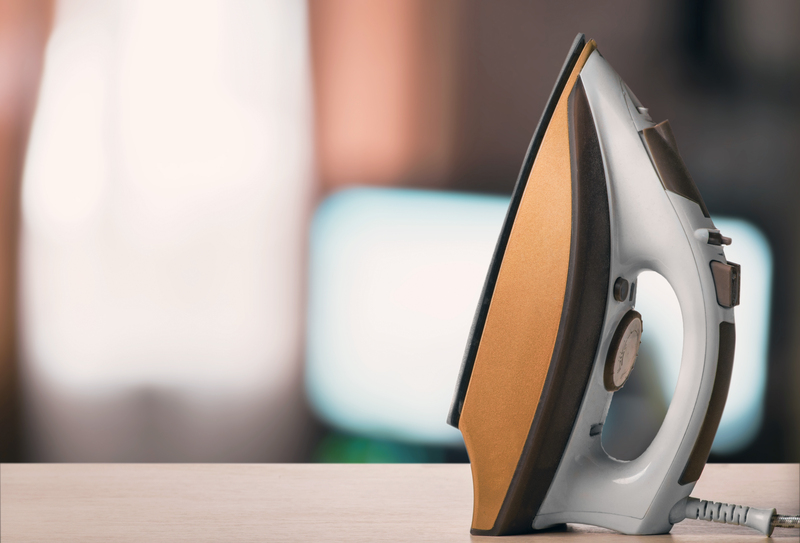Eliminate Unwanted Pet Odors for a Fresher Home
Posted on 23/09/2025
Eliminate Unwanted Pet Odors for a Fresher Home: The Ultimate Guide
Pets enrich our lives with joy, companionship, and unconditional love. However, owning furry friends often comes with an inevitable challenge: persistent and sometimes unpleasant pet odors. Whether you have a playful pup or a cuddly kitten, eliminating unwanted pet odors is crucial for maintaining a fresh, welcoming home. In this comprehensive guide, we'll explore how to neutralize pet smells, prevent them from reoccurring, and keep your living space smelling clean and inviting.
Understanding the Causes of Pet Odors
Before tackling any odor problem, it's essential to understand its root causes. Pet odors often result from:
- Urine and fecal accidents: Even house-trained pets can have accidents from time to time.
- Dander and shedding fur: Microscopic skin flakes and hair can trap odors in carpets and textiles.
- Pet bedding and toys: These often harbor bacteria, saliva, and residual oils.
- Wet fur: Moisture can bring out 'that smell' in pets, especially dogs.
- Anal gland secretions: Occasionally, pets may release these potent scents indoors.
By pinpointing the source, you can choose targeted strategies to remove pet odors from your home efficiently.

Why Eliminating Pet Smells Matters
Beyond being unpleasant, pet-related odors can impact your overall wellness and the hygiene of your environment. Lingering odors:
- Decrease home comfort and negatively affect first impressions for guests
- Can signal deeper hygiene or health issues
- May cause allergic reactions or respiratory discomfort
- Encourage pets to repeat unwanted behaviors, such as urinating in the same spot
Given these challenges, it's vital to stay proactive in eliminating pet odors permanently.
Proven Ways to Eliminate Pet Odors in Your Home
There's no one-size-fits-all solution. Effective odor elimination requires a multi-faceted approach, combining preventative measures and deep cleaning. Below are some of the best practices:
1. Address Accidents Immediately
- Blot up as much liquid as possible with paper towels or a clean cloth; avoid rubbing.
- Apply an enzymatic cleaner to break down odor-causing proteins found in urine and feces.
- Rinse the area with cold water and blot dry.
- Repeat as necessary until the smell is gone.
Tip: Avoid using ammonia-based cleaners, as the scent can mimic urine and prompt repeat accidents.
2. Regularly Launder Pet Bedding, Toys, and Collars
The fabrics your pet frequently uses can trap odors. To remove dog smells from your house and ensure freshness, follow these steps:
- Wash bedding, blankets, soft toys, and collars weekly in hot water (use pet-safe detergent).
- Allow items to air dry outdoors for extra freshness.
- Replace worn or heavily soiled items as needed.
3. Deep Clean Floors and Carpets
Hard flooring and especially carpets can harbor deep-seated odors.
- Vacuum floors and carpets at least twice weekly using a HEPA filter vacuum to trap dander and fur.
- Use a carpet cleaner or rent a steam cleaner monthly for a thorough deep clean.
- Spot treat stains with enzymatic cleaners for maximum effectiveness.
4. Improve Indoor Air Quality
- Open windows regularly for ventilation.
- Invest in air purifiers equipped with HEPA or activated carbon filters to capture allergens and airborne odors.
- Change HVAC filters every few months for optimal air flow and cleanliness.
5. Use Natural Deodorizers
Freshening your home naturally is both eco-friendly and safe for your pets. Consider the following options:
- Baking soda: Sprinkle on carpets before vacuuming to neutralize odors.
- White vinegar: Place bowls of vinegar around the home to absorb smells (keep out of pets' reach).
- Activated charcoal: Set containers near litter boxes or pet beds to capture and eliminate odors.
- Citrus peels: Leaving these out can deter odors and add a fresh scent.
6. Maintain Pet Grooming and Hygiene
Prevention is better than cure! Regularly grooming your pet helps minimize the buildup of odor-causing dirt, oils, and dander.
- Bathe your pet according to breed and skin type (consult your vet for guidance).
- Brush fur daily to reduce shedding and distribute natural oils.
- Check and clean paws after walks--mud and debris can add to odors indoors.
- Keep ears clean and dry to prevent yeast or bacterial infections.
- Address dental hygiene; bad breath can seep into your home's air.
7. Control Litter Box and Cage Odors
- Scoop litter boxes daily and replace litter completely at least once a week.
- Choose unscented, odor-absorbing litters for maximum results.
- Wash and disinfect cages, tanks, or enclosures regularly.
- Consider adding a litter mat to trap debris and further reduce odor spread.
8. Upholstery and Textile Care
- Use washable covers on furniture where pets lounge.
- Spray a fabric-safe enzymatic cleaner to address lingering smells.
- Launder throw pillows, curtains, and blankets monthly.
- Consider professional cleaning for stubborn odors in upholstery.
9. Preventative Measures to Keep Home Fresh
- Establish pet-free zones, such as bedrooms, to limit the spread of odors.
- Use mats at entryways and wipe paws after every walk.
- Train pets to relieve themselves outdoors or in specific indoor areas.
- Choose pet-safe house plants that purify indoor air, such as spider plants or Boston ferns (ensure they're non-toxic to pets).
What to Avoid: Common Mistakes in Pet Odor Removal
When searching for the best ways to eliminate pet smells at home, avoid these pitfalls:
- Masking, not treating: Air fresheners can cover up smells temporarily but don't neutralize their source.
- Using harsh chemicals: Strong cleaners may be toxic to pets or damage surfaces.
- Neglecting hidden areas: Odors can accumulate under furniture, behind appliances, and in vents--don't overlook these!
- Delaying cleanup: The longer stains and odors sit, the harder they are to remove.
Advanced Odor Elimination Solutions
Enzyme Cleaners and Odor Neutralizers
Enzyme-based cleaners are a game changer for removing urine, feces, or vomit stains. These products break down organic matter at the molecular level, permanently eliminating pet odors instead of just masking them. Be sure to:
- Choose cleaners labeled "enzymatic" and pet-safe.
- Follow application instructions carefully for best results.
- Test on inconspicuous areas first to avoid discoloration.
Professional Cleaning Services
For homes with persistent problems or heavy buildup, professional carpet and upholstery cleaning may be necessary. These experts utilize powerful equipment and solutions designed to eliminate dog or cat odors at the source, especially in deep fibers and padding that standard cleaning can't reach.
Odor Sealing Primers
In cases of repeated indoor accidents, urine can penetrate subfloors, walls, or baseboards. After cleaning and drying, applying an odor-blocking primer (often used before repainting) seals in remaining smells so they don't leach back into your home's air.
Preventing Future Pet Odors
Once you've tackled existing smells, it's important to establish habits that stop pet odors before they start:
- Reinforce positive potty behaviors with treats and praise.
- Stay consistent with feeding, walking, and cleaning schedules.
- Address medical issues that could lead to accidents, such as urinary tract infections or gastrointestinal problems.
- Schedule regular veterinary checkups to keep your pets healthy and odor-free.

Frequently Asked Questions about Pet Odor Elimination
How do I get rid of strong pet urine smell?
Use a commercial enzymatic cleaner specifically formulated for pet urine. These break down uric crystals, the primary source of stubborn odors. For set-in smells, repeat applications and consider professional carpet cleaning.
Why do some pet odors linger even after cleaning?
Odors can persist if organic material has seeped into subfloors, walls, or hidden corners. Make sure to deep clean and treat affected areas thoroughly. In some cases, replacement or sealing may be necessary.
Are air purifiers effective for pet smells?
Yes. Models with HEPA and activated carbon filters are best at trapping pet hair, dander, and volatile organic compounds (VOCs) responsible for odor.
What's the safest way to freshen a home with pets?
Stick to natural solutions like baking soda, activated charcoal, and trusted pet-friendly cleaning products. Avoid aerosol sprays and harsh chemicals which can harm sensitive animal respiratory systems.
Conclusion: Enjoy a Cleaner, Fresher Home with Your Pets
Sharing your home with pets shouldn't mean sacrificing freshness or comfort. By understanding the root of the problem and adopting proactive routines, you can eliminate unwanted pet odors and create a space you and your furry companions will both love to call home. Remember, a clean, odor-free environment starts with routine care, prompt cleanup, and knowing when to call in the experts for extra help.
If you found these tips helpful, share them with fellow pet owners who are also striving for a fresher, more inviting home!




